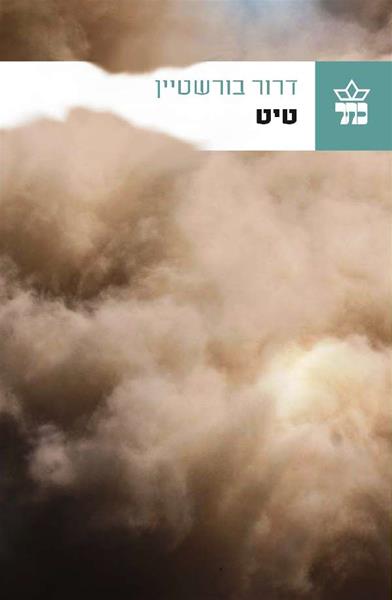
Muck
The hero of Burstein’s sixth novel is the prophet Jeremiah, a young poet who starts predicting a catastrophe. In the Jerusalem streets where he wanders, the citizens travel on the light-rail train and talk on cell phones, but the Temple is standing, King Jehoiakim lives in an ugly palace, and Jeremiah’s words demoralize the people. He warns that Nebuchadnezzar’s Babylonian army is going to surround the corrupted city, destroy it and send its population into exile. But no one listens, even when Babylonian helicopters and tanks are on the city outskirts. Jehoiakim then commits suicide and his crown passes to his son Jehoiachin, a talented pianist who is tricked into giving up his musical career in Vienna and flying back home. But his reign is short and his uncle, Zedekiah, takes power. Zedekiah is a successful poet who sports tattoos and whose poems appear in prestigious journals. He is also a childhood friend of Jeremiah’s. But now that he is king, Zedekiah sees Jeremiah as a traitor and orders him to be thrown into a pit of muck. Fortunately, a pack of dogs, headed by a talking dog, saves the tormented prophet from drowning.
Muck is a complex, brilliant and daring novel. Partly an attempt to rewrite the story of Jeremiah in modern dress, it may also be a chilling prophesy for contemporary Jerusalem. It invites the reader to re-assess the relevance of the biblical text today and to view the cyclical nature of history.


- Languages
-
English, French
-
English
New York, Farrar Straus and Giroux, 2018;
Audio recording: Grand Haven, Michigan, BrillianceAudio, 2018 -
French
Arles, Actes Sud, forthcoming in 2024
-
| Title | Muck |
|---|---|
| Writer's Last Name | Burstein |
| Writer's First Name | Dror |
| Genre | Fiction |
| Publisher (Hebrew) | Keter |
| No. Pages | 331pp. |
| Book title - Hebrew (phonetic) | Tit |
-
“Burstein is one of the most experimental and exciting Israeli novelist writing today”
-
“Brilliant…and moving. ”
-
“Burstein has succeeded. Perhaps because it is not the history that interests him but rather the prophet and the king … The last chapters of Muck are truly hair-raising, and they can be read over and over without losing their power.”
-
“Burstein’s books always [refer us to] complex theological and mystical texts, and raise original, thought-provoking questions. This is true of his latest novel too.”
